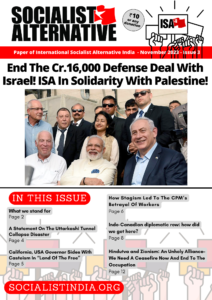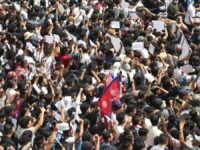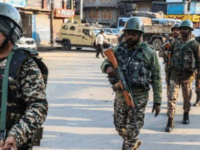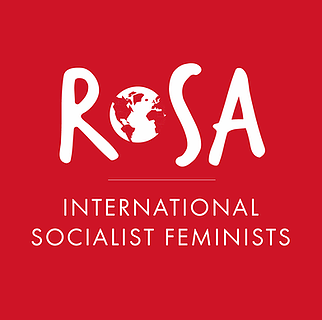1 May. The Working Class is Back! For an International Socialist Alternative to Capitalist Permacrisis
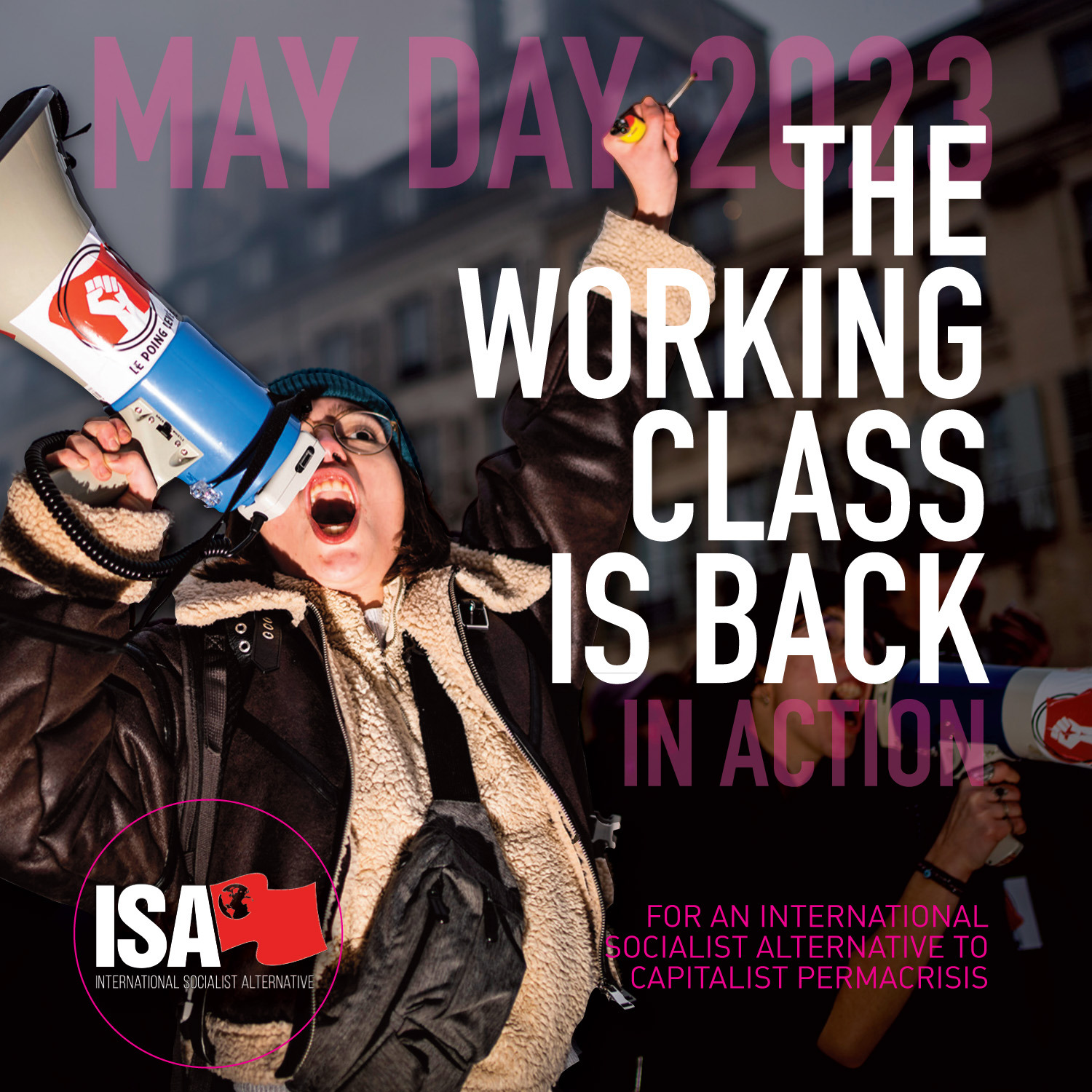
The working class is back. Since May Day 2022, there has been an important upturn in the activity of the multiracial, multi-gendered and multigenerational workers’ movement. It has been active in struggles across the world — shaking the regimes of tyrants, defending the most oppressed sections of the class and taking on the bosses’ attempts to push the cost of living crisis further onto workers’ shoulders. Though there will be peaks and valleys in every struggle and it will not proceed at the same pace everywhere at the same time, this process is not a blip, but the beginning of a crucial and lasting turning point.
Strike waves, mass strikes and even general strikes have been prominent features of the situation in multiple countries (and where this is not yet the case, workers and youth look on in solidarity and take inspiration from those already in struggle). The UK is still in the midst of a strike wave that has been going on for almost a year with 2.7 million days lost to strike action between June 2022 and January 2023, with December seeing the most days lost to strike since 1989.
In November of last year, the heavily unionized Belgian workers saw their first general strike since 2014. The end of March was marked by the ‘megastrike’ in Germany where ver.di (service workers) and EVG (rail and transport) unions called joint strike action for the first time in history. And the ‘renewable general strike’ movement against Macron’s pension reform and subsequent dictatorial enforcement moved French society into open revolt in what has become a reference point for workers around the world.
In Sweden, a country where the trade union movement has been hamstrung by the bureaucracy’s rotten ‘social partnership’ agreements with the state and the bosses, a small but important three-day wildcat strike of commuter train drivers has taken place in what will only be music of the future. Palestinian teachers, which represent the second biggest group of public employees of the Palestinian Authority in the occupied West Bank and besieged Gaza, have been on strike since February 5, fighting for higher wages, better working conditions, educational independence and trade union democracy. South Africa lost 1.6 million days to strike action in the first six months of 2022 alone, a thirty-fold increase from the same period in 2021.
Rising Popularity
Accompanying the upsurge has been a general positive shift in views towards trade unions in many countries as a result of the move towards action — showing that a bold lead can mobilize a broader section of the working class. The labor movement revival in the US has not been just marked by phenomena such as ‘Striketober’ but a surge in new unionization efforts like those at Amazon and Starbucks and a record 71% approval rating for unions among the general population.
In England & Wales, the National Education Union has reported surges of tens of thousands of new members during its last two major disputes, including hundreds of members signing up to become workplace representatives and shop stewards for the first time. The German ver.di union recruited 65,000 new members in just January and February alone! And in many cases this has been driven by an influx of women and young workers. The impact of a new generation of workers entering into struggle and becoming rank-and-file leaders of the class struggle will have an important impact on the character of the battles to come and on the internal situation in the unions themselves.
These are just a few examples with different immediate triggers but all of which underline some truths of the moment. There is no ‘chinese wall’ between the many forms of suffering, misery and oppression which affect the working class in this new ‘Age of Disorder.’ Workers are moving into collective struggle not just on economic issues but also many political and social demands. These include questions running the gamut from democratic rights to the fight against gender-based oppression. As well, though the main trigger may be one issue, the overlapping and interconnected nature of the ‘permacrisis’ pushes struggles to become much broader in scope and aims. And perhaps most crucially, these actions have been driven by pressure from below, often against the wishes of the official ‘leadership’ of the workers’ organizations.
A Revitalized Movement for the 2020s
Nevertheless, these green shoots of recovery come after decades of neoliberalism and its corrosive impact on the labor movement, affecting working-class consciousness and organization. We still face many obstacles. Forces such as the trade union bureaucracy — the conservative leaders of most of the world labor movement — represent a real barrier to struggle, though some figures are more open to pressure than others. As Marx wrote in 1852: “The tradition of all dead generations weighs like a nightmare on the brains of the living” and this is what the bureaucrats represent. Many of them look to an often fictional past where a strategy of class collaboration and even “partnership” with employers could secure their positions (and hefty salaries) and maintain social peace. While it is a positive sign of the times that trade union leaders like RMT General Secretary’s, Mick Lynch garner celebrity status for berating the bosses and their media mouthpieces, militant rhetoric is no substitute for a strategy rooted in the movement’s fundamental source of power — the mobilization of the working class. That lack of confidence in our class’ ability to change the world undermines the movement. But the weakness of such leaders (even well-intentioned ones) is also fundamentally political: without the perspective of revolutionary transformation of society to socialism, at the critical hour they will always be looking for ways to demobilize the struggle in favor of a return to a version of the status quo.
This means the rank and file need to get organized. We need a program of fighting policies to bring forward into the workers movement, making it truly combative and democratically accountable to the working class, not a privileged bureaucracy. In the trade unions and other workers organizations, this means all officials should only be on the salary of an average worker and their positions should be democratically elected and subject to immediate recall if necessary. Strikes and disputes should be controlled by the broadest possible assemblies and democratic committees of the workers involved. The approach of only narrowly focusing on the conditions of a small section of trade union members must be thrown aside — our movement must be one of solidarity for the entire working class: an injury to one is an injury to all.
Repression Ramped Up
That adage takes on renewed importance as we confront increasingly repressive governments desperate to defend the enfeebled rule of capital. In Britain, Rishi Sunak has countered the wave of industrial militancy with a vicious spate of anti-trade union legislation. Despite mass resistance Macron invoked the loathed article 49.3, taking on dictatorial powers to ram through his pension reform.
South Korean trade unions are being confronted with a wave of anti-union laws in the wake of an unprecedented move by the government to repress the 250,000 strong truckers strike at the end of last year. Feeling pressure from the rank-and-file, the CGTP trade union federation in Peru called a general strike to demand an end to brutal state repression and the resignation of illegitimate coup-president Dina Boluarte. The president-elect of Nigeria, Bola Tinbu, former governor of Lagos State, may seek to replicate what he did in Lagos on a national level — making all of Nigeria into his personal fiefdom and continuing to exploit the working masses which are facing an incredible cost of living crisis. This poses the need for Nigeria’s powerful labor movement to prepare for a serious campaign of action.
Working Class Puts its Stamp on Events
Peru is one of the many instances in which the working class has brought its enormous power to bear in wider political movements. In Israel/Palestine it was the power of organized labor — expressed through an “illegal’ political general strike at the end of March — that forced Netanyahu to temporarily pull back his plans for a judicial coup. Although the majority of the ruling class backed the general strike, they did so as a last resort, to halt Netanyahu’’s further destabilization of Israeli capitalism — in the background of a historic political crisis which is interlinked to the deepening crisis of the occupation regime.
Nevertheless, those on strike, both Israeli and Arab-Palestinian workers, have gotten a sense of their power. Though Israeli protests and strikes were to a large extent politically hijacked by establishment forces whose agenda is not fundamentally different from the current capitalist occupation government, they reveal deep contradictions in Israeli society and express a sense of impasse and revulsion from the Israeli far-right and the crises under Israeli capitalism, from the cost of living to personal insecurity. In the long run, it can open up the irreconcilable contradictions at the heart of the Israeli state and its barbaric war machine. When Palestinian workers ground construction to a halt in 2021’s “Dignity Strike”, they likewise demonstrated their strength, giving an insight into the type of movement needed for Palestinian liberation — one capable of ending the occupation and sweeping away capitalism and imperialism in the region.
Last year’s Hartal (all out strike) in Sri Lanka delivered a critical blow from which the rotten Rajapaksa dynasty never recovered. In Iran, key sectors of workers joined the revolutionary movement against the theocratic regime, triggered by the murder of Jina Mahsa Amini. Although the organization and leadership necessary to raze the dictatorship to the ground was absent, the revolt has left a lasting impact on consciousness. As the Haft Tappeh sugar factory workers expressed in a statement of solidarity with the women on the frontlines of the rebellion:
“This great and laudable uprising should be linked with the strike of workers everywhere in this land. To get rid of discrimination and oppression, to get rid of poverty and hardship, to have bread and freedom, let us not leave the girls of the sun and of the revolution alone.
Girls of the sun and of the revolution; On the day of victory, the whole world will take off their hats in front of you — you gave everyone a lesson in standing up and resisting.”
Fighting Oppression
Indeed their words reflect a global trend of workers’ gaining confidence and clarity about our potential to transform society. We make the world run; our position in production endows us with a latent power to bring it to a standstill. The strike is therefore our most potent weapon, one that must be brandished against all the horrors of the system. Working-class women at the beating heart of the global feminist revolt have drawn this conclusion. Feminist strikes call on workers of all genders to withdraw their labor, harnessing the social weight of our class against inequality and sexism,
In the process we forge the unity and cohesion necessary to withstand the ruling class’ intensified onslaught of divide and rule politics. ISA members have been to the fore in fighting for the workers’ movement to mobilize its forces in the struggle against all forms of oppression. As the Tories escalate their attacks on trans rights, fomenting the type of violence that led to the murder of Brianna Ghey, Socialist Alternative comrades in several unions passed a motion calling on “Support protests and struggles to defend and extend the GRA reform, and to stamp out all transphobic violence” among other important demands.
Internationalism — Antidote to Imperialist Warmongering
The festering growth of reaction is one of the many morbid symptoms of a system in decay, hurtling us towards catastrophe. Climate breakdown hastens and the war in Ukraine escalates. Putin justifies the bloodshed, attacks on the civilian population and infrastructure, and the occupation and annexation of whole regions with bellicose jingoism. He’s not alone. From the US to China, all imperialist powers have ratcheted up their poisonous nationalism. In response, our movement must rediscover and reaffirm the principles of internationalism.
Working people in Russia have far more in common with their class siblings in Ukraine than the warmongers in the Kremlin. Western imperialism and Zelensky are pursuing their own geopolitical interests in contradiction to the national and social aspirations of the Ukrainian masses of the Ukrainian masses defending their homes, rights including the right to self-determination. To guarantee those, the struggle must be organized from below on working class cross-community basis, and coalesce into an international anti-war movement, one that’s completely independent of any and all imperialist butchers, drawing its strength from our class’ singular capacity to shut down the war machine.
Found Society Anew
Against the backdrop of a decaying system convulsed by crisis, has it ever been clearer that the workers of the world are those best suited to run society? The pandemic showed us who were really ‘essential’. And in every movement we get a taste of our potential to “found society anew”, as Marx put it. With their ‘Robin Hood’ actions, French energy workers have provided free power to the poor and cut off the rich, offering us a small glimpse of a world where our class is in the saddle, planning the production and allocation of resources on the basis of need, not profit.
Nevertheless workers remain ill equipped to take on the parasitic elite. Despite the growing willingness to step up the struggle, the absence of our own political force leaves us fighting with one arm behind our back. In the age of the permacrisis even significant victories will be transient. What’s given with one hand is taken with the other: rising food prices immediately gobble up wage increases, bonuses end up in the landlord’s pocket.
If we are to go beyond the fight for mere survival the workers’ movement must rearm, and furnish the necessary tools to strengthen and broaden our struggle. That requires us getting politically organized, creating new organizations that can unite and combine all movements that emerge in response to the endless misery that capitalism shall continue to breed.
In recent years, mass struggles across the globe have thrown up embryonic forms of self-organization: resistance committees in Sudan, the cabildos in Chile, neighborhood assemblies in Colombia and revolutionary youth councils in Iran. These show what is possible. But they must be cemented into mass, genuinely democratic workers’ parties that fight independently for our own interests separate and against the capitalist parties and politicians; political organizations that collectivize the experience of our class, allowing us to discuss the strategy and tactics, program and demands for the movement.
ISA sends fraternal May Day greetings to workers the world over and extends solidarity to all those in struggle. You renew our confidence that the working class can transform society! Barbarism and catastrophe awaits us otherwise. Yet by taking the main levers of the economy out of the hands of the polluters, warlords and profiteers, workers can chart an alternative course. A democratic socialist plan of production could lay the basis for a society that not only guarantees our survival but our flourishing — that gives us bread, but roses too — and unleashes the full creative potential of humanity.
